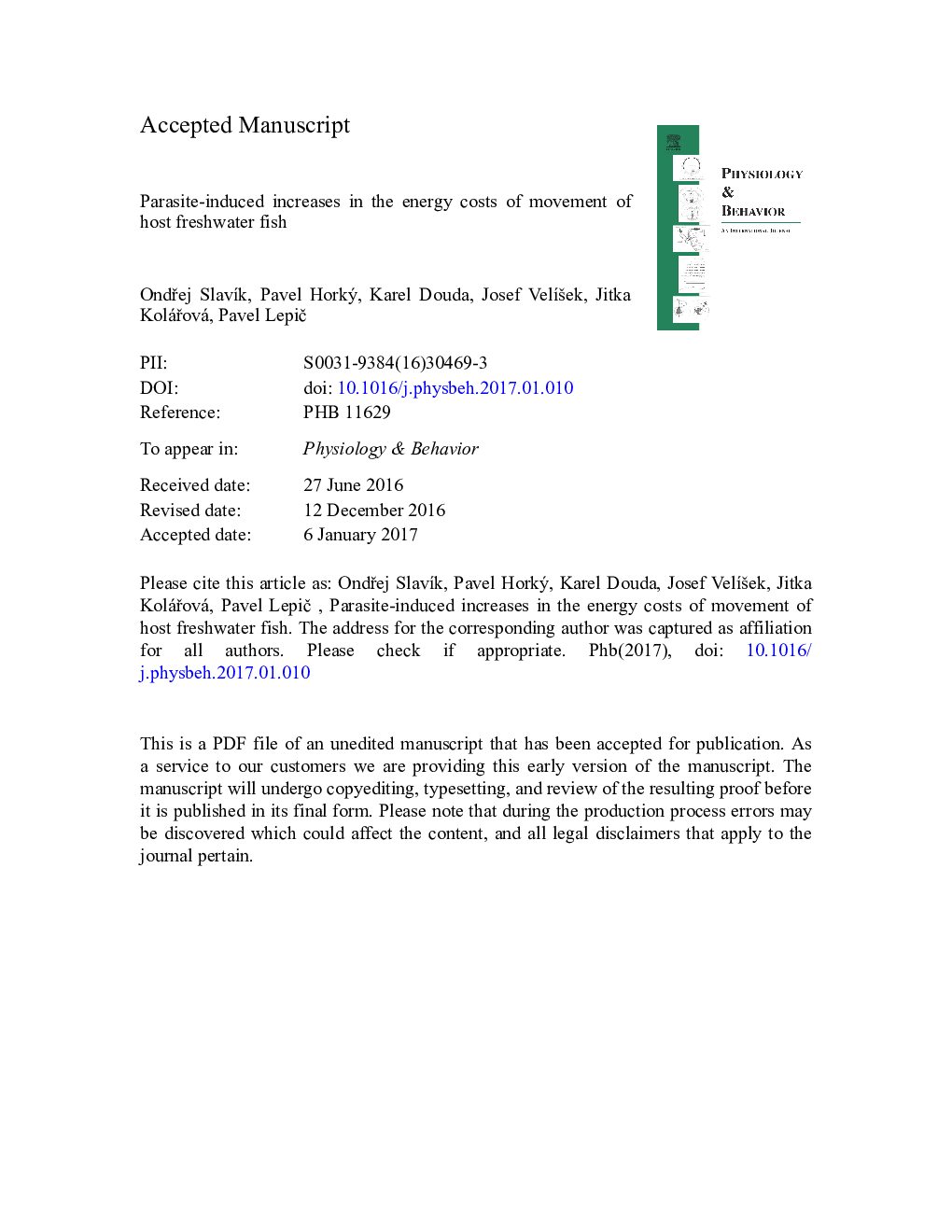| Article ID | Journal | Published Year | Pages | File Type |
|---|---|---|---|---|
| 5593831 | Physiology & Behavior | 2017 | 30 Pages |
Abstract
Parasitization by the larvae (glochidia) of freshwater mussels can cause harm to a fish's gills, resulting in less effective respiration and/or reduced activity by the host fish. The impact of glochidia infections on the host's physiology remains poorly understood, and no information is available concerning energy consumption in parasitized fish. Hence, we obtained glochidia of the invasive unionid mussel Sinanodonta (Anodonta) woodiana and experimentally infected common carp, Cyprinus carpio, tagged with physiological sensors to measure energy consumption. We tested the hypothesis that parasitization affects energy consumption in the host fish, reflected as higher energy costs for movement and reduced movement activity over eight days post-infection within a twenty-four-hour cycle. Parasitized fish showed higher energy costs of movement; however, no changes in movement activity were found compared with activity in control fish. Significantly increased biochemical indices were measured in host fish blood samples, including aspartate (AST) and alanine (ALT) aminotransferase levels, indicating liver injury, and high concentrations of potassium (K+), signifying kidney injury (hyperkalemia). Increased Clâ concentrations indicate gill dysfunction. Our results show that the energy costs due to glochidia parasitization are independent of overall movement activity patterns and vary in time according to the parasitic phase and the diurnal cycle. Moreover, the side effects of parasitization have a more important impact on fish hosts than has been shown in previous reports.
Related Topics
Life Sciences
Biochemistry, Genetics and Molecular Biology
Physiology
Authors
OndÅej SlavÃk, Pavel Horký, Karel Douda, Josef VelÃÅ¡ek, Jitka KoláÅová, Pavel LepiÄ,
